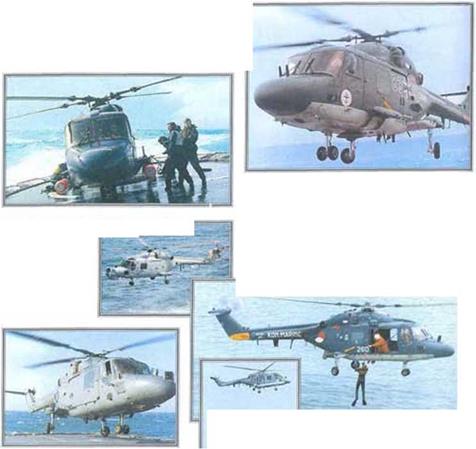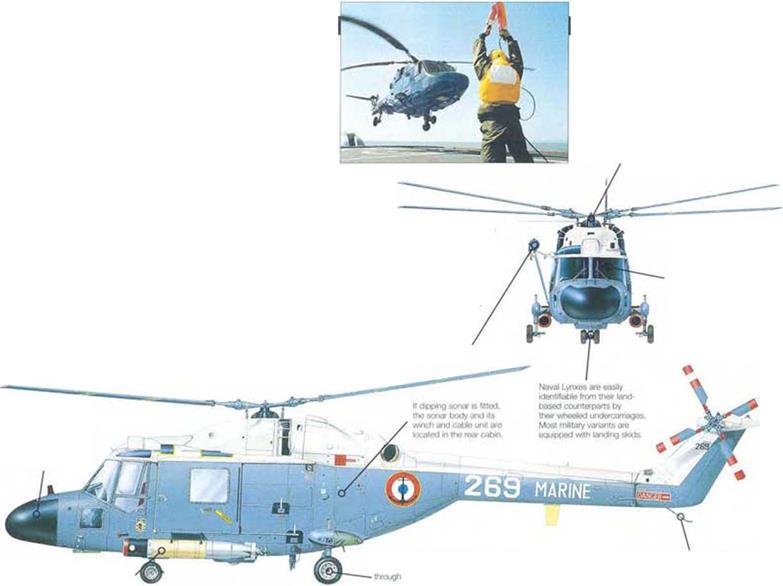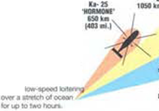Lynx (navy)
• Anti-submarine helicopter • Missile-armed anti-ship strike
Naval helicopters have added a new
dimension to naval warfare. Blooded in the Falkland» and used to deadly effect in the Gulf, the Westland Lynx, flown by the Royal Navy and other maritime services, is one of the most capable and versatile of the breed.
In addition to hunting for submarines and attacking with torpedoes, depth charges or mines, it can track down even the fastest of surface vessels with onboard radar, striking with highly accurate air-to-surface missiles.
Westland Lynx (Navy)

![]()


Super Lynx>
The very Most Lynx variants have a 360 radar capability. passtvo infra-red sensors and medial and satcAte navigation systems.
▲ War veteran
Britain’s Fleet Air Arm has used the Lynx to devastating effect in modern mantime confrontations. It made its name launching Sea Skua missiles against Argentine craft.
A Marine! lieger
The German Mannefheger operates its Sea Lynx helicopters from ‘Bromcn’-class frigates in the anti-submarine role. Unlike British Lynxes, the Marincthcger versions have a dipping sonar fitted. Tho unit. MFG 3. is basod at NordhoU when it is not deployed at sea.
While it was not specifically built for rescue missions, all Lynxes are capable of this, and most end up doing a rescue at some stage. Dutch navy Lynxes aro also equipped with dunking sonar.
FACTS AND FIGURES
>■ The first Lynx prototypo made its initial flight on 21 March 1971.
>■ The naval Lynx made its maiden flight on 10 February 1976.
Most export Lynxes, like the nine used by tho Brazilian navy, are based on Britain’s HAS. Mk 2.
► Britain’s first naval Lynx unit was No. 702 Squadron, Royal Navy, at Yeovilton, formed in December 1977.
>■ The Norwegian air forco uses tho naval Lynx for unarmed rescue missions.
► A modified Lynx holds tho holicoptor world speed record.
![]()

![]()
![]()
![]()
![]()
![]()

![]()


![]()

![]()
![]()













